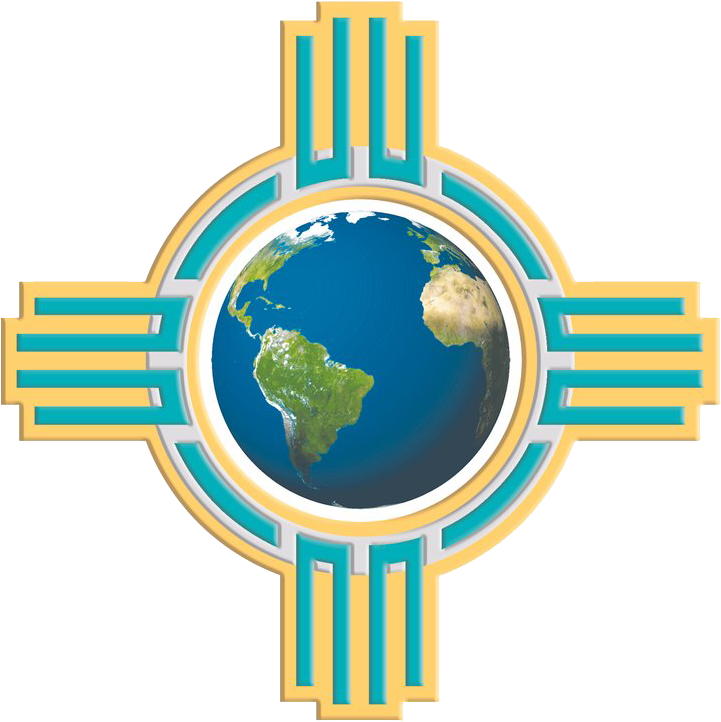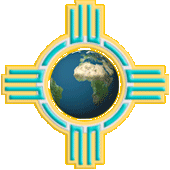
Path #4 Global Issues
A Primer for Travelers
Global Issues at a Glance…
The world is complex and confusing. As curious and engaged travelers, we may seek out information about interconnected global issues that are confronting the world today, and consider what the impact of these varied but related issues have on our local community, nation, world, and travel destinations.
Dr. Ames gives a general overview of what she considers five of the most significant global issues travelers may encounter or want to know more about: environment, global economy, political structures, social issues, and belief systems.
She suggests taking a holistic/systems approach when exploring these issues in order to find their connections and ways that we can arrive at realistic and viable solutions to these problems. Often the way we look at these issues depends on our particular worldview or cultural orientation. Opening our minds and considering the perspectives of our visitors when studying these issues goes a long way in enhancing our global awareness.
1. Environment
The climate crisis is at the forefront of the news about the environment, although there are many overlooked environmental issues as well. Dr. Ames suggests taking a holistic/systems approach when considering the environment and add different issues into the mix: endangered species and their extinction, availability of fresh water, energy use (renewable, nuclear, thermal, fossil fuels), sustainability, and our personal ecological footprint.
We all want a healthy and sustainable environment for ourselves and future generations. Although the goal of a healthy environment is widely agreed upon, accomplishing this goal is subject to spirited debate. Idealists wish to magically switch to renewable energy without regard to costs or implementation, while realists cast a dour blanket over these aspirations and point to the obstacles facing this major transition.
The difficulty, however, of making the transition to clean energy shows the realists have a point when it comes to the hard reality of continuing our modern way of life and transitioning to clean energy. Also, China, the biggest polluter in the world and India in third place (behind U.S.) don’t have the same impassioned concern for the environment that the West does. When looking at the big picture of pollution, cost effective and specific proposals are necessary.
Many of us who travel are concerned about our ecological footprint. Those of us who travel cut a huge footprint, despite our efforts in other areas such as recycling or eating little meat. I have found that most travel companies and places I have visited are concerned about the environmental impact of the travel industry and have put in place mechanisms to travel as lightly on the earth as possible.
2. The Global Economy
The global economy is undergoing a major transition from a mainly national (regional) economy (post war years to 1980s) to economic globalization and a neoliberal order (1980s-2025) to an uncertain global economic order today. Today populists support a national economy in which goods are produced in America (with tariffs on some imported goods to protect against foreign competition), energy independence, and less reliance on China for cheap imported goods.
Progressives once promoted a Modern Monetary Theory (MMT) as a way to direct the economy. MMT is an economic theory suggesting the government can simply create more money without consequence since it is the issuer of the currency. The only constraint, MMT proponents say, is the capacity of the economy to meet demand. If the government spends too much, the excess of demand will cause inflation.
Will economic globalization end? Will America First economic policy take hold. Will MMT policies prevail? The post-war economic order has in the past been directed by the U.S. and the West, this appears to be giving way to competition with China and others who lead an economic order run according to their rules. What countries will join each faction? Will the dollar continue as the world reserve currency? We are in a time of uncertain global transitions.
Center for Global Awareness design
3. Political Structures
Global political structures vary across the globe from indigenous tribal governance, to complex democratic governments, to authoritarian systems, with many different variances in between. This issues includes forms of governance, war, conflict, foreign policy.
Relative world peace (with some localized conflicts) from the early 1990s has come to an end with the invasion of Ukraine by Russia and hostilities in the Middle East. It appears that the world is loosely aligning into a pro-Russia/China/Iran/North Korea camp and a democratic, US, Australia/Japan/European countries camp with many countries staying neutral, such as India, Indonesia, and others. Will these two camps become more hostile, or will trade and economic integration trump conflict?
I am finding that the world will continue to be governed by a variety of political systems. Democratic traditions continue in the West, Japan, South Korea, Taiwan, Australia, New Zeeland, and others. Monarchical rule seems well-entrenched in most of the Middle East, with a theocracy in Iran. Latin America appears to bend towards more authoritarian rule, with some hosting democratic principles. Africa is a mix of governance systems, with many countries corrupt, desperately poor, and riddled by tribal conflict.
A few bright spots shine through in Africa, surprisingly Malawi, but most countries have seen a rise in authoritarian rule since the COVID-19 pandemic. Russia is no longer a democratic hopeful, and its aggression against Ukraine upsets the West. It has moved closer to China, which continues its authoritarian trajectory. Even India, seems to be taking a more authoritarian stance, as its huge and cumbersome democracy has problems providing a minimum standard of living for its huge population.
Although democratic traditions have a long history in the West, it appears that internal divisions among the extreme political wings (right and left) are tearing apart many Western countries, especially the U.S. The status of democracy remains in flux.
Authoritarian political structure, The Emir in United Arab Emirates, Denise Ames photo
Democratic traditions, Denise at the European Parliament in France
4. Social Issues
This is perhaps the most complex of all the global issues, and hardest to define. It includes migration, women, human rights, inequality, and family. The status of women and family are intertwined and vary according to a country’s economy and adherence to modern values. The status and rights for women have been improving, with their health care and political status a target of many campaigns and charities. However, increasing conflict and war have a dire impact on women and children and could thwart some of the gains in the last few decades.
Human rights are of central importance to Western countries, but less observed by authoritarian regimes who often feel it is a way the West exerts control. China, for example, eschews human rights and tries to turn the moral stance of the U.S. around to blame it for past slavery, displacement and extermination of native peoples, and other human rights abuses in the past.
Migration from war torn areas of the world to refugee camps or other nations, as well as migrants fleeing poverty and hopelessness to more affluent Western countries has been increasing over the last several decades and is cause for concern. Will Western countries become overwhelmed by the number of migrants entering their countries and cease to function properly?
Global inequality has been declining over the decades with a move to more global trade and economic development. Extreme global poverty has decreased but with the rise of global conflict, especially with the invasion of Ukraine by Russia, poor people will be the likely victims and inequality will increase.
5. Belief Systems
People hold countless beliefs that vary significantly according to a country’s geographic region, modern developments, and the importance of traditions, family, and kinship relations. This issue covers religion, animism, worldviews, and other belief systems.
Different forms of animism—belief that spirits abound in all material entities—are found in less developed countries. These beliefs have continued for thousands of years. Often animistic beliefs are interwoven with universal religions, a practice called syncretism.
Universal religions—Hinduism, Zoroastrianism, Judaism, Confucianism, Buddhism, Daoism, Jainism, Christianity, and Islam—first developed during the Axial Age around 1000 BCE and continued with the later rise of Christianity and Islam. These traditions continue today.
Of the universal religions today, about 2.38 billion people practice some form of Christianity globally, or about one-third of the world’s total population is Christian. Christianity has several denominations, but the largest is the Catholic Church with about 1.2 billion Catholics. Islam is on the rise and now tops over 1.9 billion people, 24% of the world population. About 1.2 billion people claim to be non-religious, atheist, agnostic, or secular. Hinduism has 1.16 billion followers and Buddhism has 506 million. Only about 1.9 million people hold animistic beliefs today.
While traditional religion is on the wane among some people in highly developed countries, others are latching on to more charismatic forms of Christianity. Interestingly, according to some accounts, social justice has become a “religion” for many progressives in the West, and has taken on the trappings of organized religion.
The beliefs system people hold and the customs, rituals, and practices that support these beliefs gives color, diversity, and nuance to people throughout the world. When traveling it is a popular attraction to encounter and connect with people practicing their particular beliefs. What beliefs do you hold?
St. Peter’s Square, Vatican, Catholics number 1.2 billion people, Denise Ames photo
“To my mind, the greatest reward and luxury of travel is to be able to experience everyday things as if for the first time, to be in a position in which almost nothing is so familiar it is taken for granted.” – Bill Bryson
Symbols of different beliefs systems, Wikipedia









